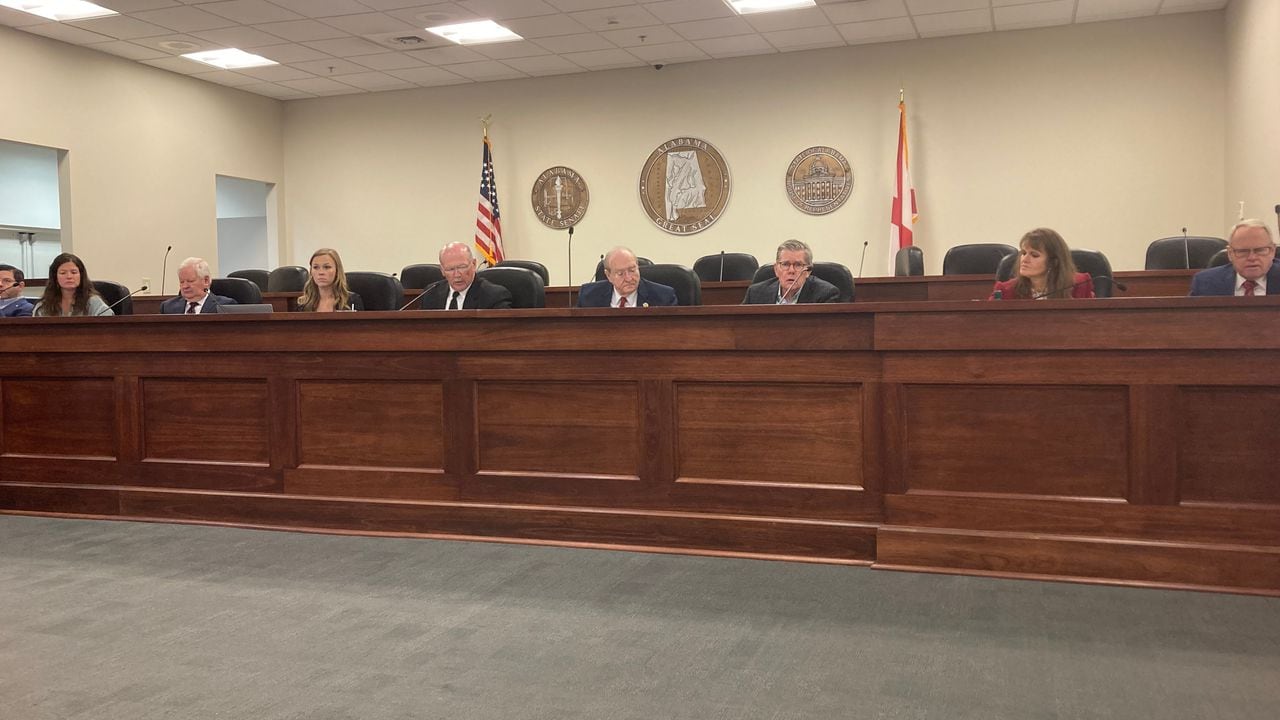Medical Cannabis Commission tosses out license application scores
The Alabama Medical Cannabis Commission voted Monday to disregard scores from third-party evaluators that had been used to rank applicants for business licenses.
The AMCC approved an agreement reached in mediation between the AMCC’s lawyers and those representing companies that sued the commission over the use of the scores and other issues in the licensing process.
The scores, compiled by graders hired by the University of South Alabama, have been one of the most contentious parts of the licensing process, which has been stalled since June, delaying when products could be available to patients awaiting the startup of the new industry.
Some companies that ranked poorly on the scores said the scoring system failed to adequately consider key factors in qualifying for a license, including a requirement to begin cultivating marijuana within 60 days of receiving a license.
The decision to disregard the scores means the AMCC is essentially starting over in the awarding of business licenses. The commission approved new rules and a timeline in October.
The plan includes allowing license applicants to make presentations to the commission for the first time. The presentations began on Monday and will continue through next week.
The timeline calls for awarding licenses in December, followed by a due diligence period, then issuing the licenses in late December and early January. If the timeline holds and the process is not stopped again by litigation, that would mean products would be available next year.
The decision on Monday to disregard the scores marks a major change in the licensing process because the AMCC had closely followed the scores when it awarded licenses in June and again in August. Most of the companies awarded licenses ranked at the top of the scores in their categories.
The AMCC later rescinded both rounds of those license awards because of the litigation and because of mistakes.
All 90 business applicants are again under consideration. The categories are cultivator, processor, secure transporter, dispenser, and testing lab, as well as an integrated category that will include cultivation, processing, transporting, and dispensing.
Cultivator applicants were the first to begin making presentations to the AMCC on Monday morning.
Thirty-eight of the 90 applicants are in the integrated category, and that category has been the main focus of the litigation.
Mark Wilkerson, an attorney for the AMCC, explained the mediation agreement at Monday’s meeting before the commission voted. Seven of the 13 commissioners voted for the agreement. None voted against it.
More than 25 companies are involved in a consolidated lawsuit against the AMCC that is pending in Montgomery County Circuit Court. Circuit Judge James Anderson ordered the mediation that resulted in the settlement.
Wilkerson said not all of the companies involved in the litigation agreed with the settlement.
When the Legislature passed the medical marijuana bill in 2021, it created the AMCC to oversee seed-to-sale regulation of the industry, which is intended to operate fully intrastate.
The law allows companies to make gummies, tablets, capsules, tinctures, patches, oils, and other forms of medical marijuana products. Patients who receive a medical cannabis card from a doctor will be able to buy the products at licensed dispensaries.
The products can be used to treat a wide range of conditions, including chronic pain, weight loss and nausea from cancer, depression, panic disorder, epilepsy, muscle spasms caused by disease or spinal cord injuries, PTSD, and others.
Alabama is one of 38 states that have approved medical marijuana, according to the National Conference of State Legislatures.
